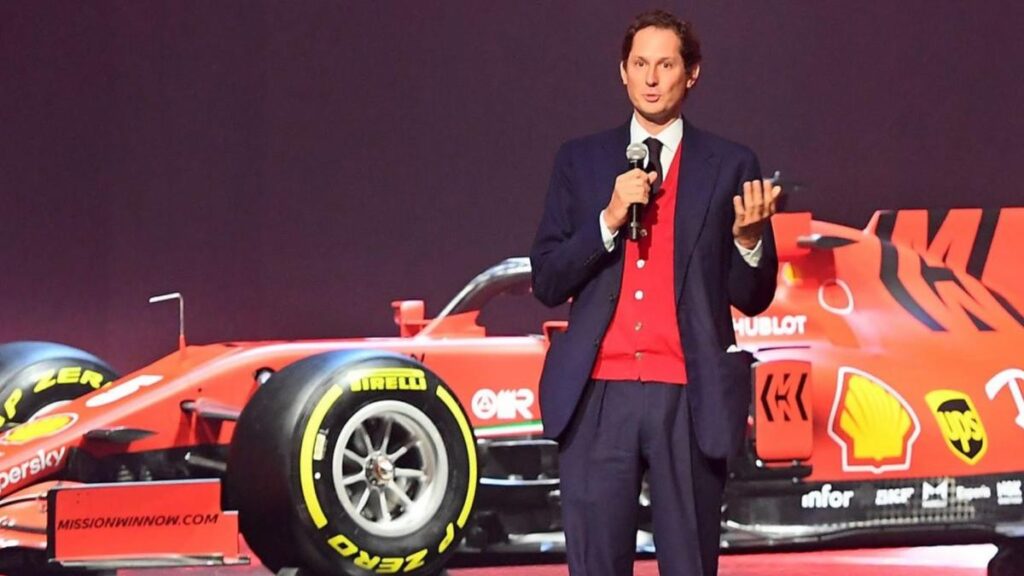
Juventus' summer transfer window intrigues as much as it worries. Igor Tudor was confirmed at his post, and if the free arrival of Jonathan David was a nice blow on the market, she does not mask the lack of financial depth of the club. The discussions around the future of Federico Chiesa, the possible sale of Dusan Vlahović, or the hesitations on profiles reflect a cold reality: Juve does not have free hands. The club advances on a thread, forced to sell to buy, to negotiate each clause, and to bet on profiles to restart or at the end of the contract. It is not only a prudent sporting strategy: it is the symptom of a main shareholder, exor, redefining its economic priorities. Because behind Juve, there is exor, the holding of the Agnelli-Elkann family, which crosses one of the most delicate phases in its recent history.
Exor has controlled Juventus for over a century, but it is also she who holds Stellantis, today in the midst of an industrial crisis. With automotive production in free fall in Italy and a vague future for several factories, Exor must now manage an expensive industrial hemorrhage which aspires resources, at a time when the sale of the Gedi group, controlled by Exor and publisher of the La Repubblica and Stampa newspapers, is still relevant. In this context, each investment is reconsidered, and Juventus, historically protected, is no longer untouchable. Sports investments must be financially justified, cash advances are done on droppings, and the absolute priority is to stabilize Stellantis, much more strategic at the group scale. It is in this logic that we must now read the transfer window of Juve: no longer as a purely sporting ambition, but as the direct reflection of the economic pressures that weigh on its shareholder.
The inquiétude kungne a Turin;
The storm that shakes Stellantis – Production in Italy in free fall of 26.9 % in the first half of 2025, barely 222,000 vehicles out of the channels and a forecast of only 440,000 for the year – Met Exor, the holding of the Agnelli -Elkann family, facing an existential dilemma: mobilize billions to revive Mirafiori, Mirafi or accept an industrial decline in explosive social and political consequences. Where Stellantis has so far represented a regular flow of dividends, it is now likely to become a liquidity chasm, at least until the arrival of the new Fiat 500 hybrid at the end of 2026. This tilting requires exor to redefine its financial priorities, and when the “factory” coughs at this point, the “leisure” that represents a football club immediately become variable. However, Juventus depends more than ever on the Gr the Giffé Agnelli. In March 2025, Exor had to advance 15 M € to complete the season after the dismissal of Thiago Motta, by putting black on white the possibility of a much more substantial call for funds in early July, a second check for € 15 million came to confirm the club's cash emergency.
Even with these infusions, the first Mercato envelope fixed by Damien Comolli caps at … € 50 million, packaged at heavy sales (Dusan Vlahović, Douglas Luiz) to hope to climb to € 150 million. The fresh money which, in the past, was almost “automatically” from Turin via Exor rarefly: each euro diverted to the Continassa is now a euro which is not used to amortize the colossal losses of Stellantis or to finance the reorganization of its Italian factories. In the short term, this tension will result in a transfer window: loans, players at the end of the contract, Paris on the Next Gen. But the real risk is structural. If Stellantis does not straighten the bar by 2026, Exor will have to arbitrate even more severely between industry and football. Juve could be forced to sell one or two major executives each summer to stay under the new UEFA rule. Less budgets also means less attractiveness for leading coaches and for premium commercial partnerships, at the very moment when Inter and AC Milan take advantage of more offensive shareholders.
Clearly, a crisis that some deemed “extra -attending” threatens to redefine the hierarchy of Serie A and to send the old lady to a “self -sufficiency” strategy which recalls the years 2006-2011 – with the hope that this time, the financial reporter does not take five years. If the negative spiral of Stellantis persists, the portfolio arbitrations at Exor could become brutal: the holding company could choose to protect its “cash cow” Ferrari first – whose record capitalization of record on record and whose Exor has just sold 4 % to collect 3 billion euros – rather than to regularly mop the losses of a vulnerable juve to the new UEFA rules. In this scenario, Elkann would no longer spread the idea of yielding a minority block from the club to bring out external capital (the cryptocurrency company Tether has already declared himself ready to climb above 5 % if we open the door). Even if Exor has denied any immediate sale, the simple prospect of disengagement – symbolic rupture after more than a century of Agnelli – Juventus family alliance – would be lived as an earthquake in Italian football, meaning the end of a hereditary patronage which has shaped the identity and the successes of the old lady since 1923.
Pub. the
– Maj the

